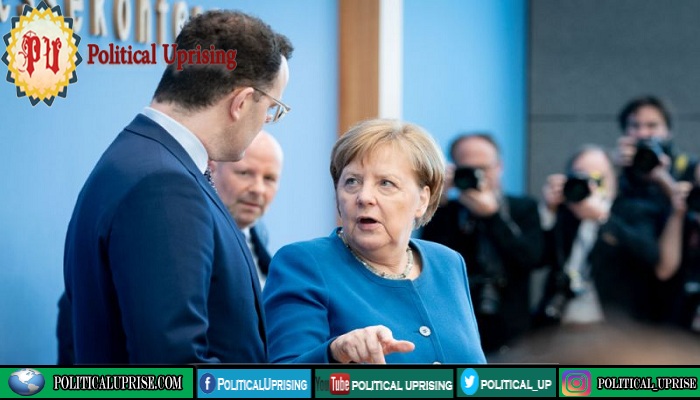German government pledges Unlimited Cash to dull the economic impact of the coronavirus as European Union Set to Green Light Spending.
Germany pledged to spend whatever is needed to dull the economic impact of the coronavirus, while the European Commission said it’s ready to green light widespread fiscal stimulus if the situation deteriorates.
Germany’s goal is to make sure firms have sufficient liquidity to get through the crisis unleashed by the outbreak, the finance and economy ministries said in a joint statement Friday.
Finance Minister Olaf Scholz said there will be no limit to the money available and Germany may need to take on additional debt to finance the spending spree.
German major port city votes amid German political unrest
Yields on Germany’s 10-year bonds extended their advance to 16 basis points as of 12:01 p.m.in London and were on course for their biggest gain since 2015.
“We have the financial strength to deal with this crisis,” Scholz said at a news conference in Berlin.“There is enough money there and we are deploying it. We are using all necessary measures to protect workers and companies.”
The action by Berlin and Brussels signals a dramatic upping of the ante after a week in which European leaders were warned they face an economic meltdown on a par with 2008 unless they take decisive action.
Markets plunged on Thursday when the European Central Bank’s aid package disappointed investors.
The European Commission pledged maximum flexibility in the bloc’s fiscal and state-aid rules to allow for countries to provide aid to businesses and workers that have been hit.
Tough fiscal rules could be suspended altogether, allowing cash injections to companies including airlines and tourism firms, as well as emergency spending on health care services, the EU’s executive arm said.
German Military adviser goes on trial for leaking secrets
It stands ready to use an emergency clause proposing to member states to suspend any fiscal adjustment effort whatsoever because of the crisis,in case of a severe economic downturn in the region.
In the meantime, it said countries could use the full flexibility of fiscal rules, meaning any measures they take won’t be factored in the assessment of their deficits.
The commission also said the EU’s own investment fund will guarantee 8 billion euros ($8.9 billion) of loans to 100,000 small-and-medium sized enterprises. Affected companies will be able to delay the payment of their existing loans.
The German proposals include allowing companies to defer billions of euros of tax payments and a massive expansion of loans from state-owned bank KfW.
“No healthy company should go bankrupt because of corona and no job should be lost,” Economy Minister Peter Altmaier said. “We are spreading a comprehensive protective shield over workers and firms.”
As part of efforts to cushion the virus impact, Germany’s lower house of parliament earlier Friday approved enhanced government powers to provide financial support to companies forced to halt work and send staff home.
The law, which would allow affected firms easier access to funds for paying furloughed employees, was fast-tracked through the legislative process, reviving measures that helped Germany avoid mass layoffs during the 2008 financial crisis.
The German bond market sold off rapidly after the announcement by Scholz and Altmaier,led by debt with the longest maturities.
Germans minority raise alarm after far-right political scandal
Thirty-year yields jumped 20 basis points to -0.22% the most in over a decade, on a closing basis.
“Clearly the push is toward incentivizing fiscal policy and co-ordination with governments, said Imogen Bachra, a strategist at NatWest Markets Plc in London. “The measures announced so far in Germany had been small so we were certainly expecting more.”
Markus Soeder, the head of the Bavarian sister party of Chancellor Angela Merkel’s CDU, predicted that a recession in Germany is “just around the corner” with potentially devastating consequences.
“We have to expect the loss of thousands, maybe even millions of jobs,” Soeder, who is also prime minister of Bavaria, said at a news conference in Munich. “We have to do to whatever it takes to keep the economy running.”



